Grieving Daughter Finds Note In Fossil Purse While Thrifting
Thrifting can net all sorts of treasures. Shoppers can snatch up everything from vintage clothes to mid-century modern furniture to kitschy knick-knacks, all without breaking the bank.
But for one grieving woman, she found a hidden gem that was truly priceless.
Unexpected Thrift Store Find

Photo of a little girl with her father and a black purse.
TikTok/Abrielle Clausing
On January 13, 2021, Abrielle Clausing's world fell apart. Her father unexpectedly passed away from Covid-19. As anyone who has experienced grief knows, the journey isn't a straight one. It ebbs and flows with some days being significantly harder than others.
It was during a "particularly hard grief week" when Abrielle, 24, decided to embark on some retail therapy. She used to love thrifting with her dad, and no one loved a good deal more than he did.
However, she didn't just want to shop for the sake of shopping, she had a very specific item she wanted in mind.
"My sister and I decided to go thrifting and I told her I wanted to find a vintage Fossil brand purse," she explains in a now-viral TikTok video.
And wouldn't you know, Abrielle did indeed end up finding "the cutest vintage Fossil brand purse" - seriously what are the chances?
And as if that wasn't serendipitous enough, it was about to get a whole lot more remarkable.
Inside the purse was a handwritten note:
"When you read this you will be far from me in miles but not in my heart. I'm here. I love you."
Whelp.
She immediately took it as a sign from her beloved dad.
"I knew it was from him," she told People. "I always check the inside of the bag before I buy it to make sure it’s in good condition. When I stuck my hand in it, I felt the piece of paper and when I took it out and found the note, I read it out loud to my sister."
"When I saw the note, it just confirmed that he was with us," she added. "He’s always with us."
Response To The Viral TikTok
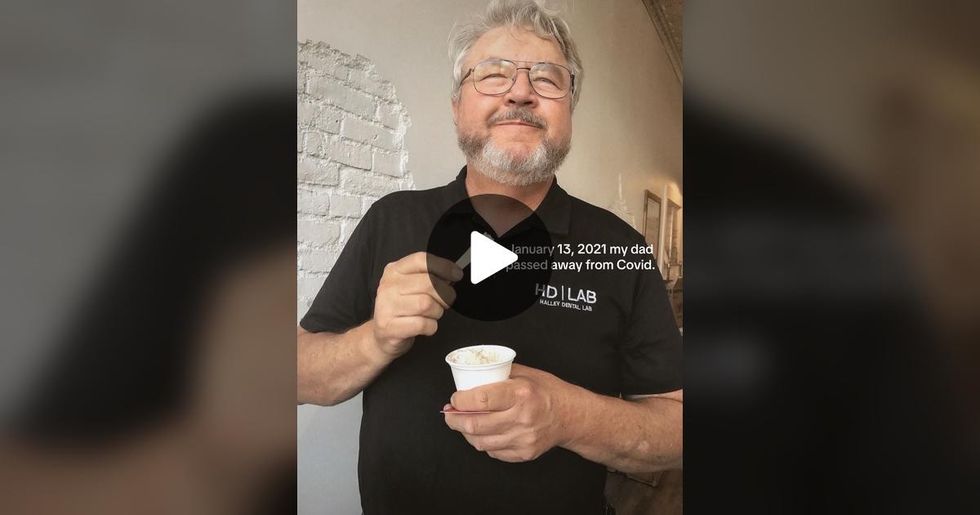 TikTok · abrielleclausing
TikTok · abrielleclausingAbrielle's heartwarming video has garnered nearly one million views and over 1,000 comments and it's making believers out of every single one of us.
"I'm so afraid that death is final and we just stop existing. But some things can't be explained. There has to be more out there!!"
"This was def him 🥹💙"
"I’m literally crying so hard. Someone would have had to carry me out of the thrift 😭"
"I'm honestly at a loss for words. Wow. Just wow."
Even Fossil weighed in, writing, "What a beautiful note to find. Your dad's love will always be with you. Sending you and your family a big, warm hug."
Her TikTok also opened the floodgates for others to share the signs they've received from lost loved ones.
"My brother passed away & years later I was at a checkout line in the store & at the cash register was a young school photo of him that someone left.... never made sense but I'll never forget it."
"About 30 seconds after bursting in tears thinking about my grandpa a car merged in front of me and the license plate was his name and his age when he died 😭😭"
"When my mom passed, days after I found an email that not me nor my sister had opened or read before. It was an email my mom sent us 4 years before with the message “open it when I’m gone, love, mom”. It had a beautiful letter as an attachment."
Love Lives On

The note Abrielle Clausing found in a Fossil bag while thrifting is now part of a cherished collage.
People.com/Abrielle Clausing
Abrielle has given the note a place of honor, right smack in the middle of a framed collage of her favorite sayings and things.
It's a beautiful reminder that the love she shared with her dad lives on, even though he is gone.
And whether you believe in fate or not, you have to admit the universe had an uncanny way of showing up just when she needed it to.
After all, what are the odds that a stranger penned a note with the exact words she needed to hear, placed it in the exact bag she was looking for, AND that bag ended up in the exact thrift store she was shopping in? Pretty astronomical.
And yet, here we are.
Life is full of unexpected, magical moments that often happen when we least expect it. And sometimes those moments bring us the comfort and connection we need most, reminding us that love...is never truly lost.













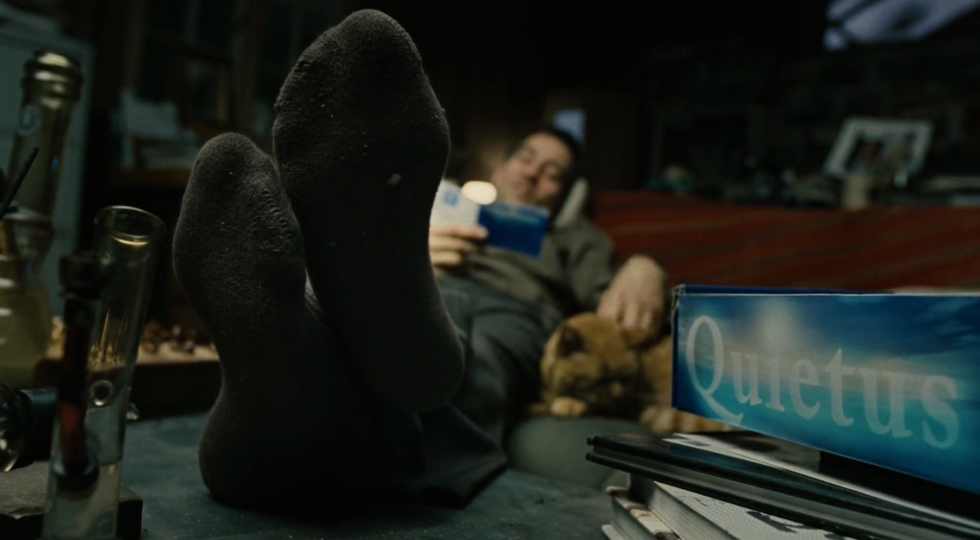
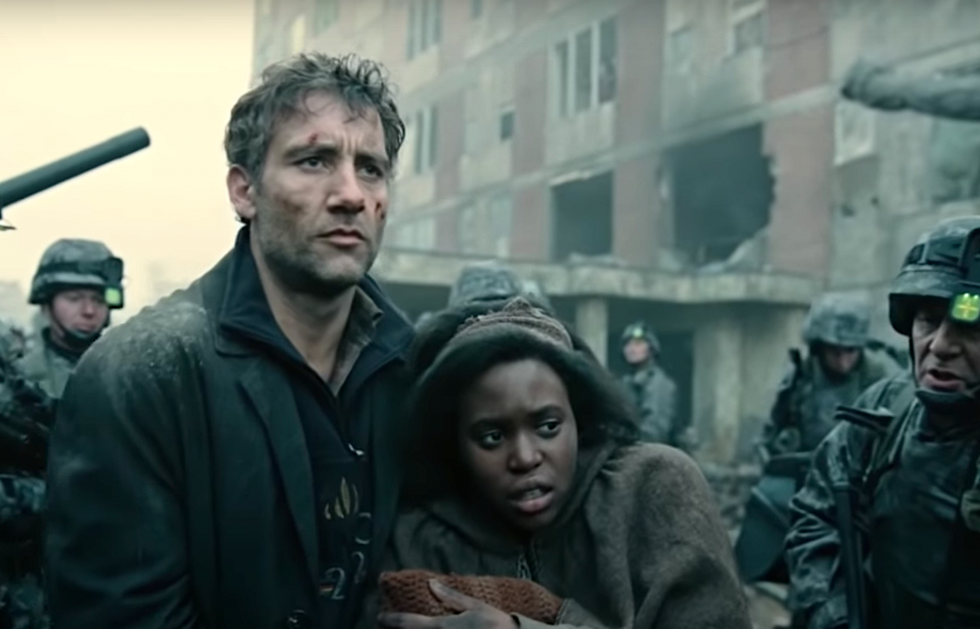
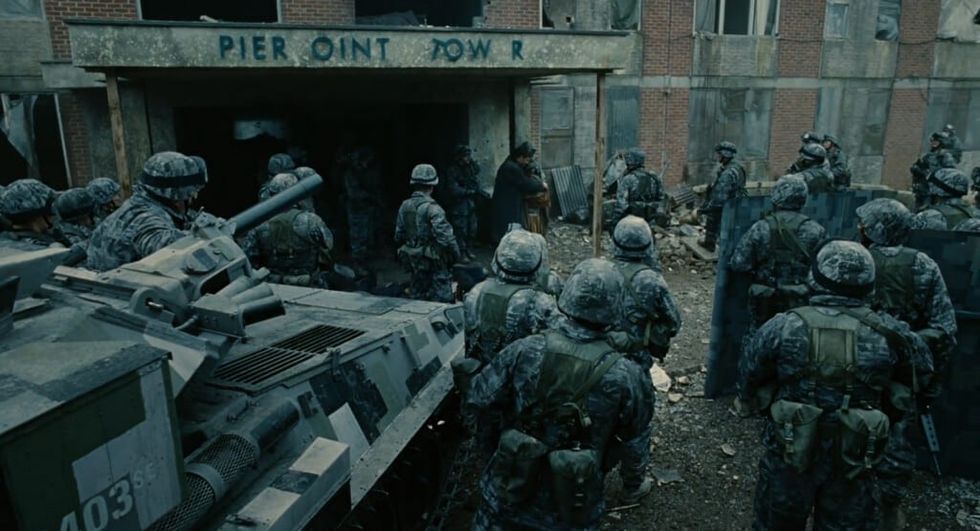
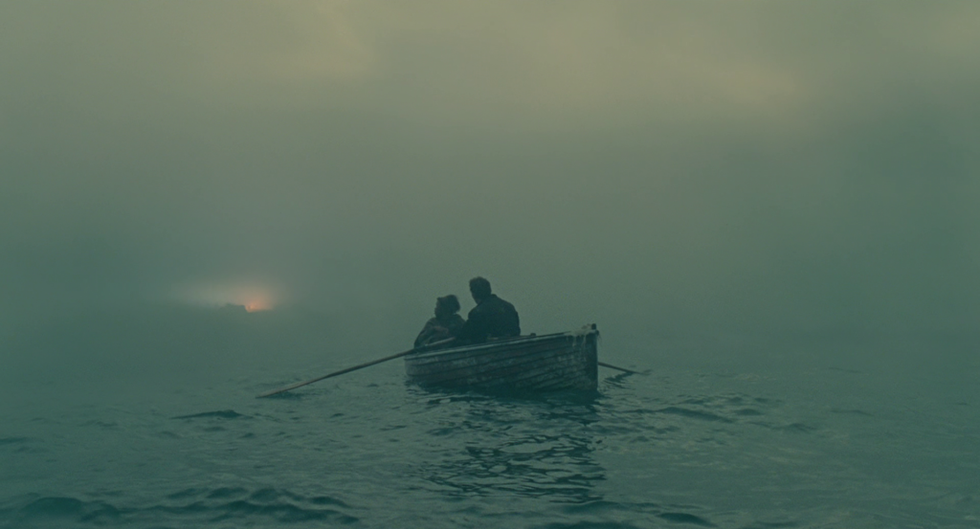









 Goalcast
Goalcast Goalcast
Goalcast











